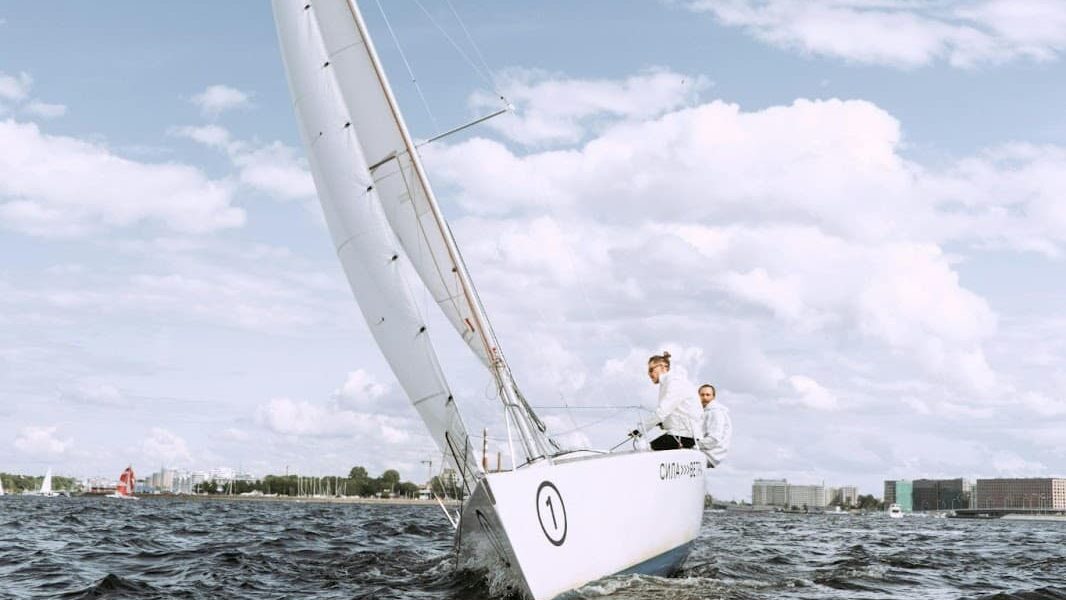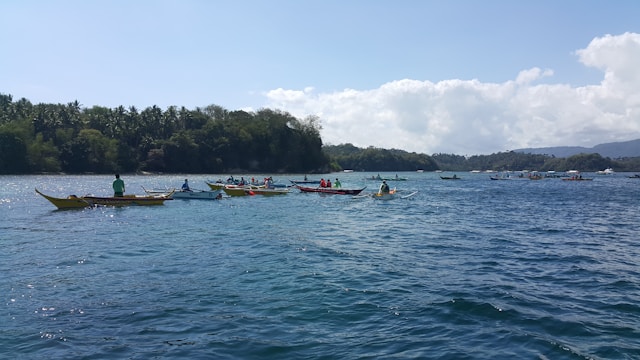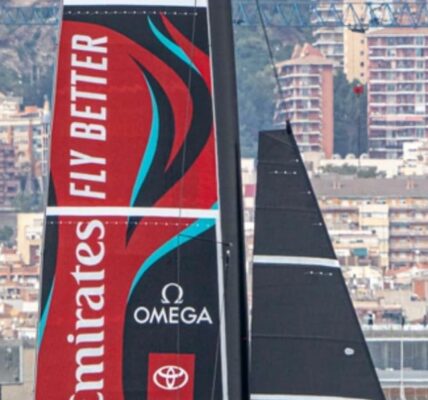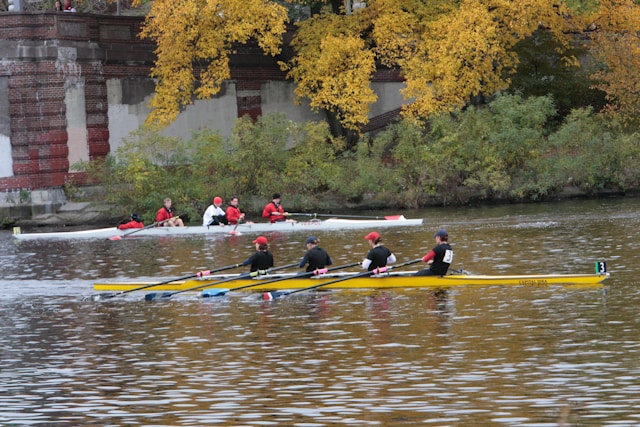Dragon Boating is a traditional paddled watercraft activity in China that goes back more than 2000 years. Modern sport has crews of up to 20 paddlers, using fiberglass boats with decorative Chinese dragon heads and tails. A combination of ancient tradition and modern athleticism makes dragon boat racing relevant as never before. This sport grants one of the world’s most visually striking and emotionally powerful team experiences. Who knows, we might see online gaming platforms like GGBet add dragon boating to their library one day.
Ancient Culture Inspiration
Dragon boat racing has its spiritual and historical origins in the Pearl River Delta in Guangdong Province. The festival is inspired by Qu Yuan, a patriotic poet from the Chu Kingdo. He committed suicide in the Miluo River. His friends tried to scare away evil spirits by beating drums and throwing rice into the water. The dragon boat racing heavily relies on this ancient story. The public mourning turned into an annual tradition during the Dragon Boat Festival.
Modern Dragon Boat Racing Structure
Dragon boat racing has become an international event, with participants from 70+ countries. Modern races usually involve 10- or 20-seater boats, with paddlers sitting in pairs. A drummer at the front sets the rhythm. A steersman at the back ensures course stability. Official races have several distances: 200m, 500m, and 2000m.
Racing is represented by men’s, women’s, and mixed divisions. Mixed boats require at least several female paddlers to meet the eligibility requirement. All participants must demonstrate their strength, rhythm, and endurance. The lead paddlers determine the team’s pace. The rest of the team must synchronize with them to avoid the “caterpillar effect” leading to failure.
Let’s not ignore the artistry of dragon boat racing. It is reflected in the hand-carved dragon heads and tails adorning each vessel. These mythical symbols are more than mere decorations—they carry the identity, history, and spirit of the represented communities.
Diejiao Phenomenon: Drifting Tradition
The Diejiao dragon boat race is an intangible cultural heritage in Foshan. “Corner-drifting” dragon boats are speeding through narrow, twisting canals. Meanwhile, paddlers perform dangerous maneuvers that demand quick coordination and nerves of steel. This unique style draws public attention, with thousands of people lining the banks to cheer as boats tilt through sharp bends. The spirit of “win for the village” pulses through every stroke, ensuring local pride to national reverence. Before each race, boats are polished and slicked with lard to gain a small advantage. Diejiao dragon boat drifting becomes a performance of courage, culture, and camaraderie.
Community, Culture, and Celebration
Dragon boat festivals are not only athletic contests but also cultural carnivals. Guests and participants are welcomed with drumming, dancing, and traditional foods. Races look like public gatherings, building strong bonds between different communities.
Events often include invitational races, encouraging cross-cultural interaction. Teams from Hong Kong, Macao, and other provinces race on local boats with local helmsmen, encouraging cultural exchange. Similar to Diejiao’s “Open Tournament,” these events create shared experiences rooted in mutual respect and tradition.
Attempt to Explore a Living Tradition
Do you decide to witness a race from a crowded riverbank in Guangdong? Or do you participate in a race in Vancouver or Cape Town? Dragon boat racing always receives an emotional response from the audience. The drum sounds, the synchronized paddlers, and the thousands of spectators create a unique atmosphere.
Young artisans, local schoolchildren, and global paddlers continue to master the sport. The dragon boat racing is more than just a performance. It is a celebration of who we are, where we have come from, and what goals we pursue. In a world that often feels fragmented, dragon boat racing can be a great source of empowerment. When we paddle in unison, we move forward together.



